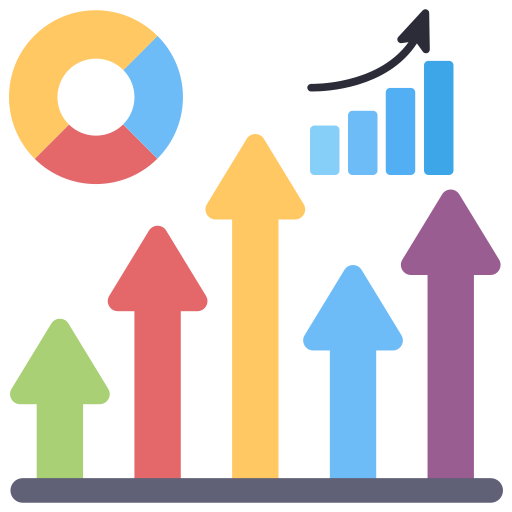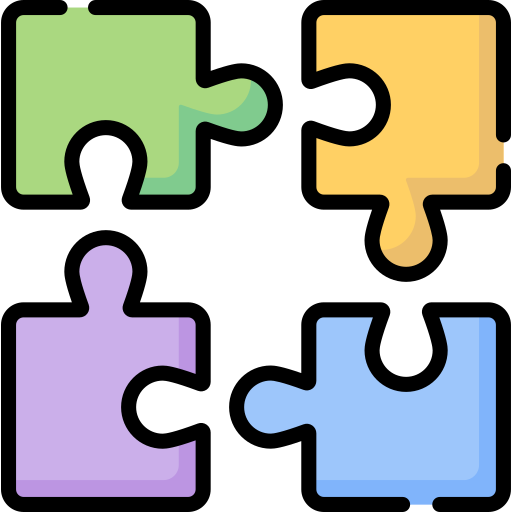ERP Consulting
- Home
- ERP Consulting
Enterprise Resource Planning (ERP) System
As your business grows in size and complexity, ERP is software to streamline your business processes, automate workflow, manage centralized data, make smarter decisions, and perform better.
What is ERP?
Enterprise resource planning (ERP) is business software that allows you to manage all your core business operations in the finance, sales, inventory, HR, manufacturing, and more departments on one platform.
Instead of managing tasks in separate systems or manually on paper, ERP digitalizes, optimizes, and integrates your business processes from end to end and across your teams.
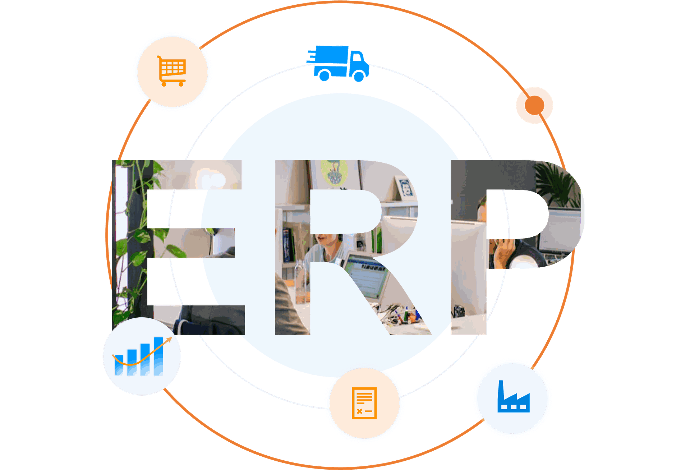
How does an ERP system work??
Cover core business processes
ERP provides integrated modules and features to manage key business areas, like sales, purchase, inventory, and accounting. It also covers other modules, such as manufacturing, HR, e-commerce, POS, etc.
Centralize and share data
Master data is standardized and centralized in one place. From that, your transactional data (PO, quotation, invoice, etc.) and business documents (taxes, HR data, inventory levels, etc.) can be easily accessed and shared with the right people.
Automate workflow
ERP helps automate each step of your workflow. You can automate the purchase process based on the future production plan, automate invoice generation based on sales orders and shipped quantities, and so much more.
Real-time reporting and analytics
With centralized data in one place, ERP systems provide reporting tools and metrics to visualize your business data, helping analyze and evaluate business performance, forecast, and make data-drive decisions.
Data security
ERP helps to manage data governance in high level via access right setup for each data type and each user to take actions on business documents and processes.
Integrate with other software
An ERP can be connected to existing systems, such as CRM, e-commerce platform, or BI tools, to meet specific business needs while ensuring data accuracy and security.
Benefits of ERP system?
As your business grows in size and complexity, ERP is software to streamline your business processes, automate workflow, manage centralized data, make smarter decisions, and perform better.

Increase productivity
ERP enables leads to better manage business operations and workforce. Your team to boost productivity and efficiency with automated tasks and effective communication tools.
Focus on growing your business and let the system care for the rest.
Improve customer service
Data centralization in ERP gives you a clear view of everything from inventory to customer trends to increase sales opportunities.
It helps speed up order processing and better inventory management, which improves customer satisfaction with personalized services.
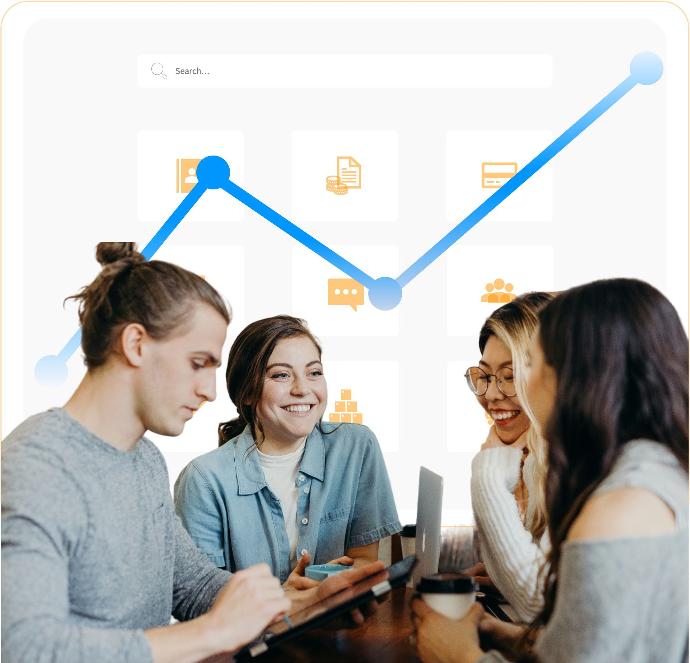
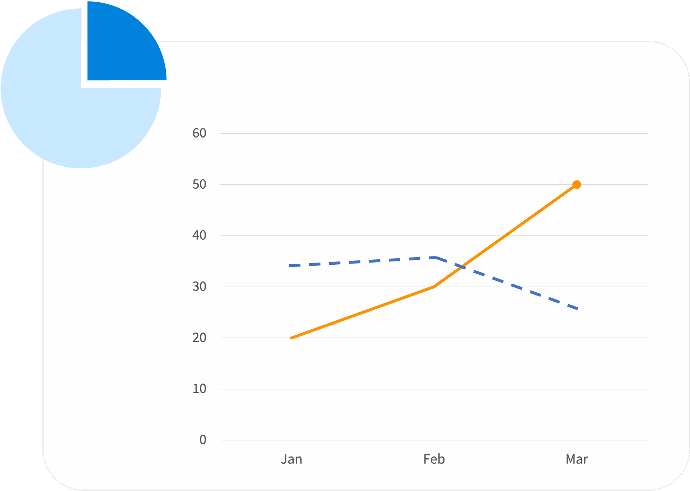
Reduce Cost
ERP enables leads to better manage business operations and workforce. Your team to boost productivity and efficiency with automated tasks and effective communication tools.
Focus on growing your business and let the system care for the rest.
Enhance regulatory compliance
ERP systems offer an audit trail that documents every data change and user activity, ensuring transparency for regulatory compliance.
As your business grows and regulations change, ERP systems can adapt to meet new requirements.
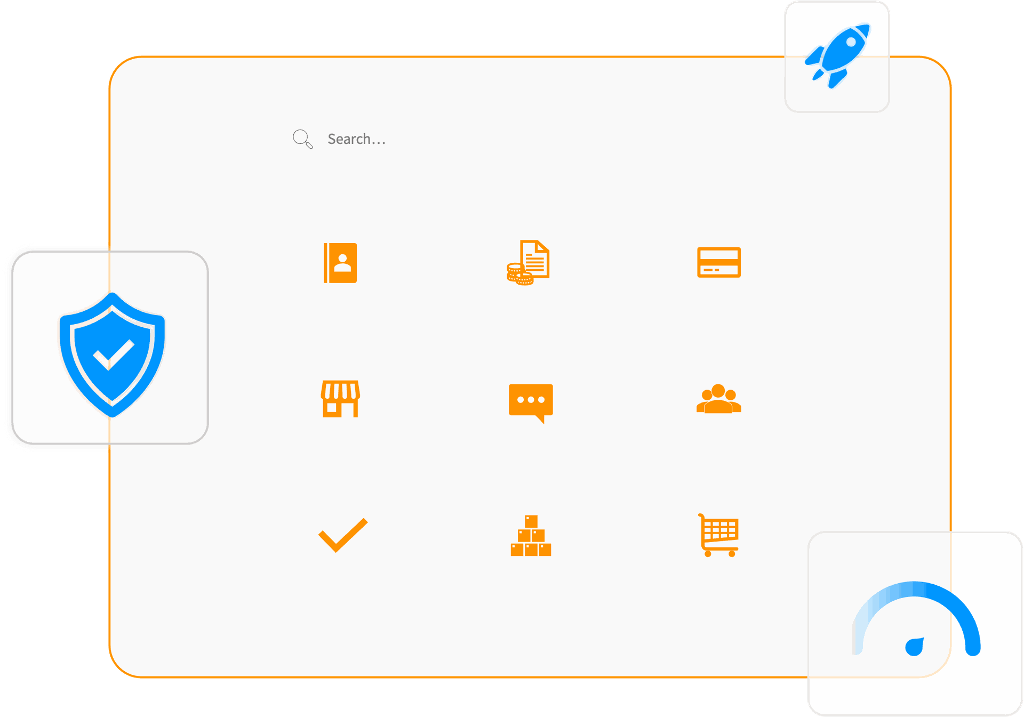
ERP Modules & Features
Start using ERP with the essential modules and features you need now.
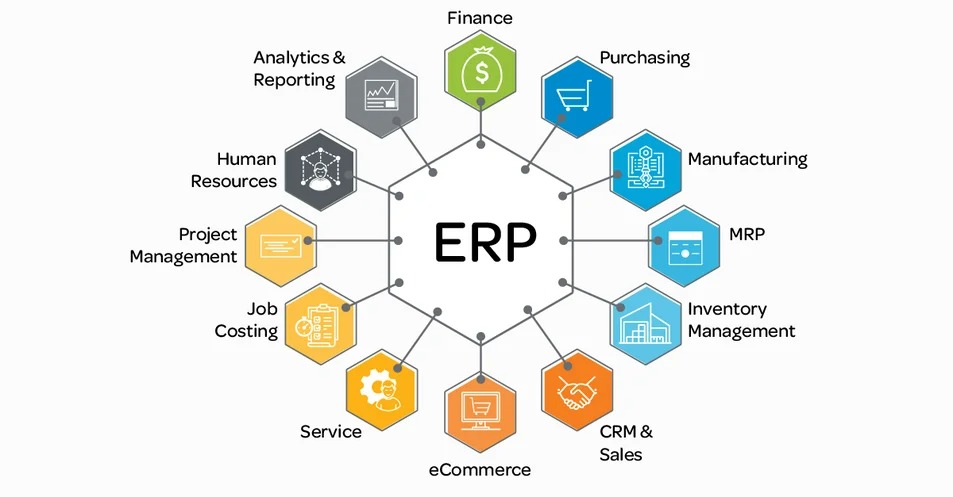
- Financial Module
- Sales Module
- Purchase Module
- Inventory Module
- Manufacturing Module
- Human Resources Module
- Services Module
- Website & Ecommerce Module
An ERP system’s backbone provides real-time financial data, giving a clear view of financial status, greater control of day-to-day operations, and more accurate reporting.
ERP Features:
- General ledger
- Accounts receivable & payable
- Accounting reconciliation
- Legal statements
- Bank statements
- Asset, expense & revenue management
- Reporting & analytics
Acts as a command center for your sales team to streamline the sales process, close more deals, and deliver personalized service experiences to customers across touchpoints.
ERP Features:
- Sales order processing
- Sales reporting and analytics
- Customer relationship management (CRM)
- Point of sales management
Streamline the procure-to-pay processes, including handling supplier management, purchase orders, inventory, and invoicing. This ERP module is integrated seamlessly with the financial and inventory modules to optimize procurement efficiency and cost control.
ERP Features:
- Purchase request management
- Purchase order management
- Purchase invoicing management
- Vendor management
- Purchase reporting and forecasting
The ERP Inventory module reduces inventory costs and improves customer satisfaction by automating workflows and optimizing stock levels across locations and sales channels.
ERP Features:
- Real-time inventory tracking
- Serial/Lot Tracking
- Multi-/warehouse management
- Multi-location management
- Replenishment Management
- Product management & traceability
- Inventory reporting and analytics
- Barcode
Simplify and automate your manufacturing line with ERP’s powerful manufacturing module. It supports resource planning and production scheduling to optimize your production pipeline, reduce costs, and better manage supplier relationships.
ERP Features:
- Order management
- Planning & Scheduling
- Shop Floor
- Quality Control
- Master Data Management
- Product Lifecycle Management (PLM)
- Manufacturing reporting and analytics
The ERP’s human resources module consolidates all HR data into a single system, making it easy for your HR team to manage employee information, performance, time off, payroll, and expenses. This saves time and ensures accuracy and compliance with regulations.
ERP Features:
- Human resource management
- Approval
- Time-off
- Performance
- Documents
- Reporting and analytics
ERP systems provide modules specializing in field service with powerful process tracking and communication tools for your team to deliver the best service and increase customer satisfaction
ERP Features:
- Task management
- Invoicing
- Communication
Helpdesk tickets
- Customer Portal
- Reporting
Sell online with the ERP e-commerce module. You can quickly launch a B2B or B2C website, use user-friendly tools to create and change the website’s look and feel, add product items, integrate payment gateways, and update inventory information.
ERP Features:
- Website editor
- Multi-website & Multi-store
- Social media and marketing integration
- Customer Portal
- Checkout process management
- Shipping management
- Reporting and analytics
// Your first step towards the Digital Transformation Journey starts here!









